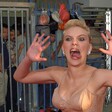Rights and Accountability 8 August 2013
The injury left him paralyzed below the waist and damaged his liver, lungs, pancreas and spleen.
Contemporaneous reports include typical Israeli army assertions that soldiers were firing at protestors throwing rocks and molotov cocktails.
Disturbing disregard for children
Days after the attack, Defence for Children International-Palestine Section (DCI-Palestine) stated:
“This shooting is devastating and tragic, and unfortunately all too common,” said Ayed Abu Eqtaish, Accountability Program director at DCI-Palestine. “The blatant disregard that soldiers often display toward children is extremely disturbing. We demand that the Israeli authorities conduct a prompt, transparent and impartial investigation and hold the perpetrators accountable.”
In a video interview published today by DCI-Palestine, Atta and his mother tell their story. “He would go straight to school and come back, and he has an attachment to his pets, all his time was spent with his birds and pigeons. He was never interested in soldiers or clashes.”
Atta says “I’m not expecting anything to happen to [the soldier who shot me].” Israeli soldiers are almost never charged with crimes against Palestinians civilians, and, when they are, punishments are insignificant.
“No, I didn’t hear anything [from the Israelis] nor did they care about the situation,” Atta said.
Atta’s mother shares a glimpse of her own fears for the future caring for a child who is disabled and traumatized. “Sometimes he gets angry. His blood pressure goes to 205. He doesn’t really speak about what’s happening. That’s how he expresses his anger.”
Life in Jalazon refugee camp is punctuated by regular incursions by Israeli occupation soldiers who arrest youth. While Atta personally expects to walk again, his mother is less optimistic. “The hardest part is his situation at home, when he goes home.”





Comments
Fund
Permalink Artemis replied on
Will Atta not even receive specialist treatment from an Israeli hospital or be sent abroad?
One way to turn the anger and frustration caused by such stories is to create a fund to support the family and give Atta some hope. Please let me know if there is one.